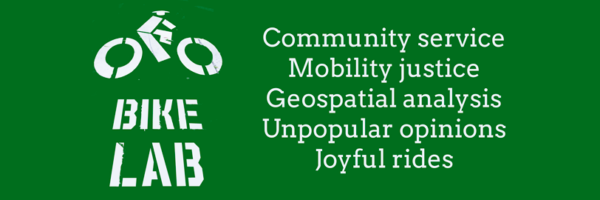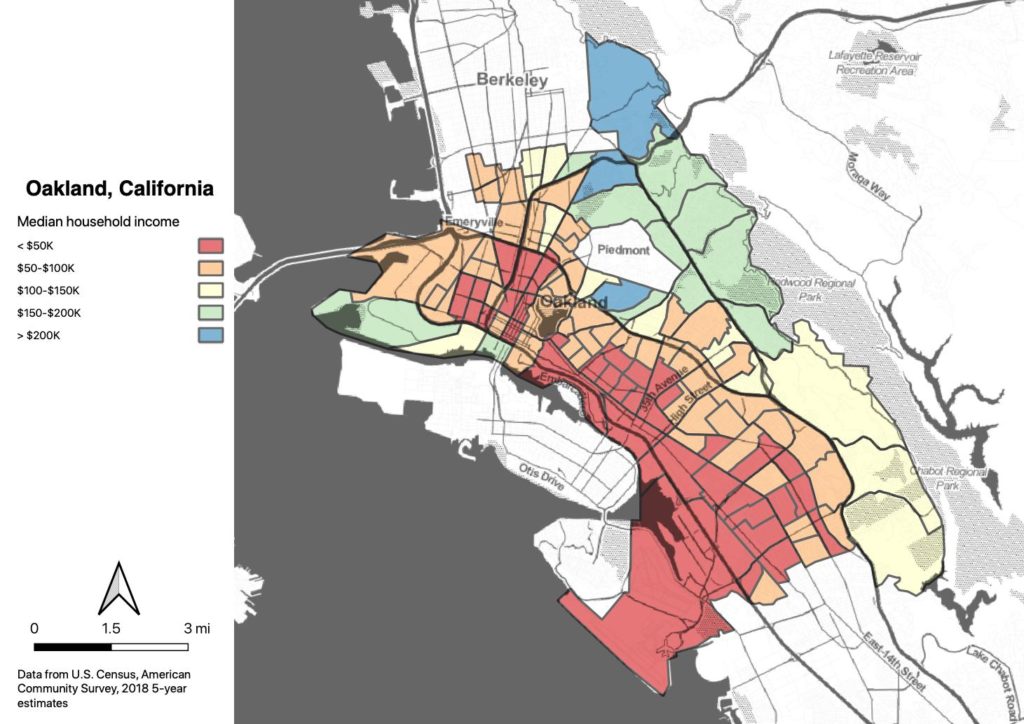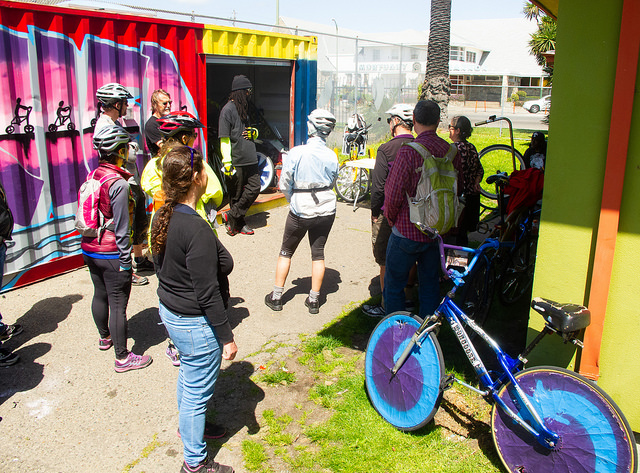I was invited to speak at LuckyDuck Bicycle Cafe’s “BikeStory: Advocacy” event this past week. There were a total of six speakers. mostly from the traditional bike advocacy world, and a sizable and pretty appreciative crowd.
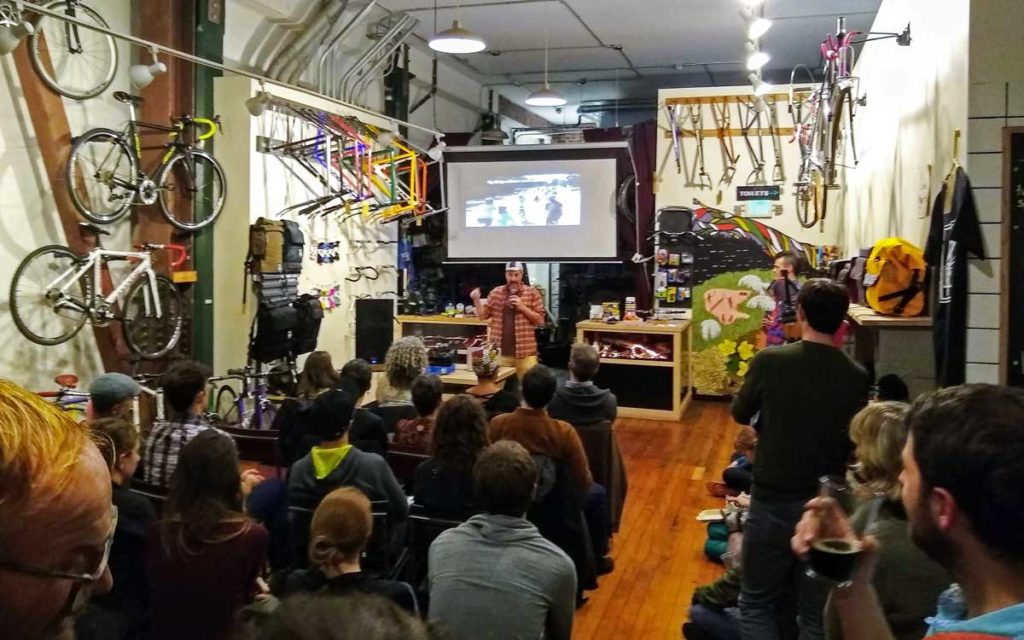
It was supposed to be an 8-10 minute talk, which meant I had to tighten up the presentation I’d previously done for a couple of groups at Berkeley. In doing that, I think I made some progress on boiling down the concepts which drive the Bike Lab’s work.
The core project of bike advocacy in the U.S. has been to remake the spatial hierarchy of our road system, to shift bicycles from being the least-valued to the most-valued users of road designs. That project is partly the result of a social change which began in the 1990s, when cycling began to rise in popularity among urban groups, particularly white males like me. Unaccustomed to being at the bottom of the social hierarchy, we adopted the tools of political activism to advance our interests.
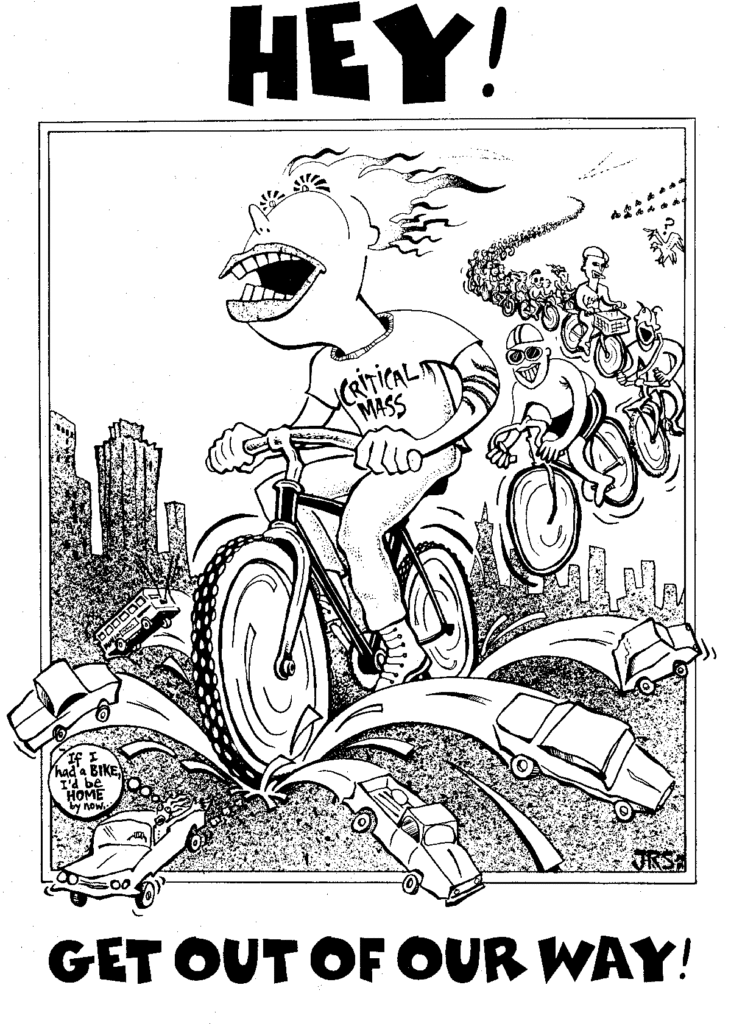
And, because of our position in society, in many cities (including Oakland) we have succeeded in making substantial changes to the way roads are designed, based on models from Northern Europe.
The project of the Bike Lab is to challenge advocates to understand that cycling advocacy is now part of the power structure of the city. With power comes responsibility; those of us who care about equity and social justice must confront the fact that power structures tend to reproduce themselves. Those Northern European designs are rooted in Northern European cultural values of order and control, and space is allocated very differently in the global South, in Asia, and even in Southern Europe. People from those cultural backgrounds have a very different relationship to Northern European ideas of order and control.
Framing the project of advocacy in moral terms, as Vision Zero does, leads to combative interactions which tend to silence people with other ideas.
And finally, everyone should read Peggy McIntosh and Adonia Lugo. McIntosh:
Some people “get” the idea of systemic privilege and ask “But what can I do?” My answer is, you can use unearned advantage to weaken systems of unearned advantage. I see white privilege as a bank account that I did not ask for, but that I can choose to spend. People with privilege have far more power than we have been taught to realize, within the myth of meritocracy.
